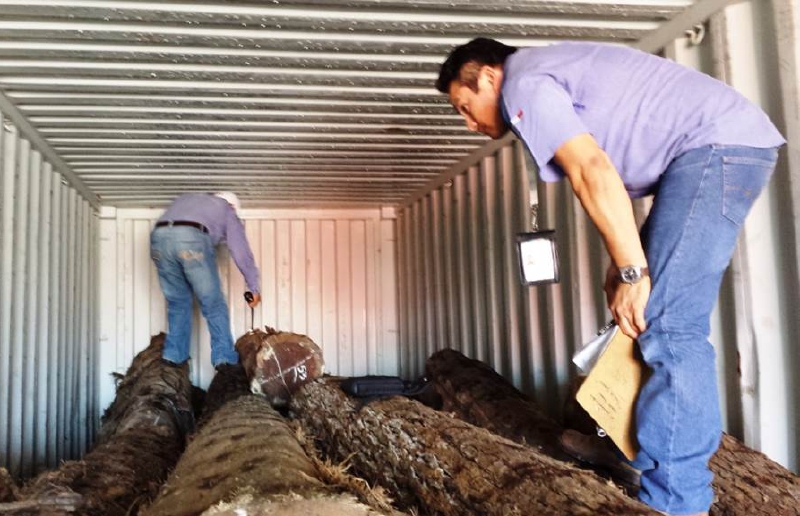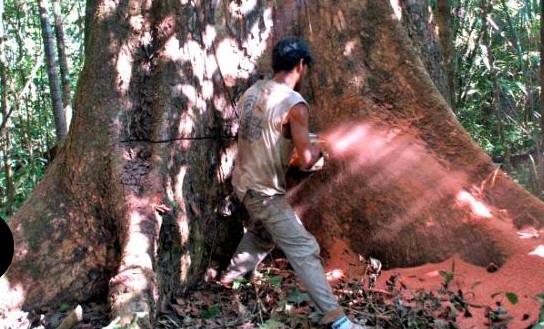PROGRESO — Timber trafficking is considered an environmental crime, and it keeps police authorities just as busy as drug trafficking does.
Recently, the port of Progreso, Yucatan is becoming a focal point for the smuggling of these woods. Some of these illegal shipments come not only from Campeche, Tabasco, Chiapas and Veracruz, but in some cases cross the national territory all the way from western Mexican states such as Jalisco, Michoacan or Colima, to the Yucatan Peninsula, where the woods, without the proper documentation proving their legal origin, are mostly destined for countries in Asia.
In the year 2013, one of the largest criminal networks was dismembered by Interpol, who collaborated with Mexican authorities to combat these illegal operations. The clandestine network spread across 12 Latin America countries and more than 190 people were arrested.
Mexican forests and jungles are zones of operation for illegal loggers, who have established networks covering the national territory as well as national and international waters to transport these shipments to distant places in Asia, where the black market has a strong demand for these timber products.
In February 2016, PROFEPA confiscated 53 cubic meters of wood intended to be exported to Japan and imposed a fine of $ 300,000 pesos ($15,000 USD).
The Federal Attorney for Environmental Protection (PROFEPA) seized 53 cubic meters of illegal wood, previously confiscated from an individual in Yucatan, who intended to export 294 pieces of wood species (Dalbergia) to Japan without documentation attesting the legal origin of the product.
As a resolution to set up administrative procedure in the state, PROFEPA imposed a financial penalty of $300,098.10 pesos and confiscated the entire product intended to be exported without authorization.
The confiscated material was under permanent shelter of this federal agency to subsequently determine their final destination. The fine was imposed on the basis of Article 164 of the General Law on Sustainable Forestry Development.
In December 2015, PROFEPA detected false documents to simulate the legal origin of a wood shipment (also heading for Japan), the documents stated that the wood corresponded to the blue heart (Swartzia cubensis) species. But after tests conducted at the Central Customs Laboratory of the Tax Administration Service (SAT), it was found that the wood belonged to the Dalbergia species, which is endangered and therefore illegal, resulting in the detentions.
In the month of January 2016, PROFEPA seized 15 cubic meters of “granadillo” (Platymiscium), illegal wood in the port of Progreso, which were also bound for Japan.

PROFEPA seized 15 cubic meters of “granadillo” (Platymiscium), illegal wood in the port of Progreso (Photo: yucatan.com.mx)
Sources:




